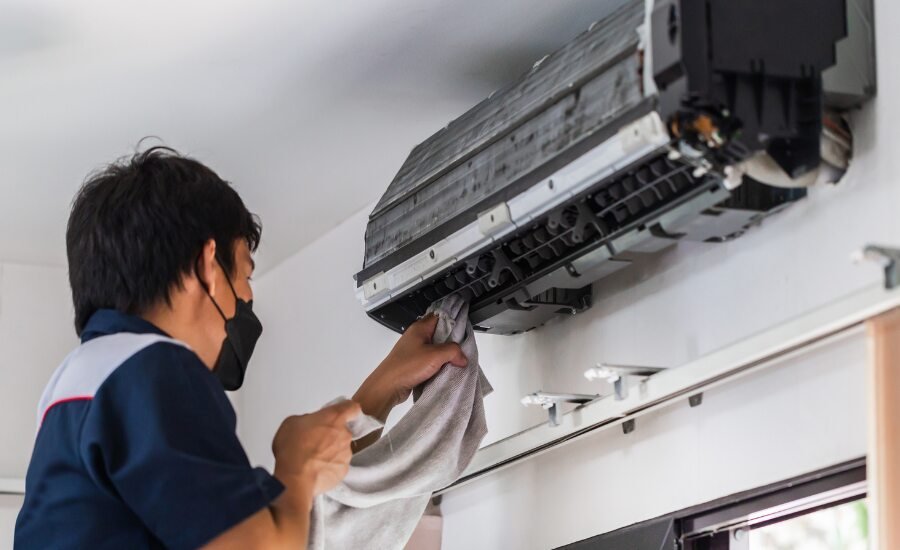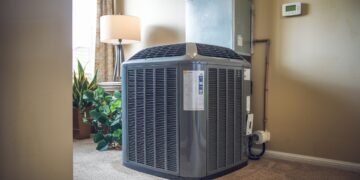Understanding when your HVAC (Heating, Ventilation, and Air Conditioning) system needs servicing is crucial for maintaining a comfortable and healthy living environment. An efficiently running HVAC system not only ensures consistent temperature control but also plays a significant role in your indoor air quality and energy consumption. This article delves into the telltale signs that indicate your system may require a professional HVAC service attention for commercial HVAC service and repair. By staying informed, you can take timely action to prevent minor issues from escalating into major problems, ensuring the longevity and efficiency of your HVAC system.
1. Unusual Noises
Identifying the Sounds and Their Implications
An HVAC system in good condition should operate with minimal noise. When it starts producing unusual sounds like banging, whistling, or grinding, it’s a clear indicator that something isn’t right. There are several possible causes for these sounds. For instance, a banging sound might signify a loose component, while a whistling noise could point to a problem with the duct system. A grinding sound often indicates bearing problems in the motor.
The Risks of Ignoring These Sounds
Ignoring these noises may cause more serious problems. For example, a loose part, if not fixed in time, can cause further damage to the system, leading to costly repairs. The grinding noise from the motor, if overlooked, could result in motor failure, necessitating a complete replacement. Early detection and repair are crucial. It’s advisable to call a professional to inspect your system as soon as these sounds are noticed.
2. Inconsistent Temperatures
Exploring the Causes of Temperature Fluctuations
If your HVAC system is not maintaining a consistent temperature or if there are noticeable differences in temperature from room to room, it’s a sign that your system may be malfunctioning. This inconsistency can be caused by a variety of factors, such as blocked air vents, poor insulation, or even ductwork problems. Sometimes, the issue might lie with the thermostat, which might not be accurately gauging or controlling the temperature.
The Importance of Addressing These Issues
Temperature inconsistencies not only affect your comfort but can also strain your HVAC system, leading to increased wear and tear. It’s important to identify whether the problem lies with the HVAC system itself or with external factors like insulation or the thermostat. A professional can conduct a thorough inspection to pinpoint the exact cause and suggest appropriate solutions.
3. Increased Energy Bills
Understanding the Impact on Your Wallet
A sudden and unexplained increase in energy bills is often a warning sign that your HVAC system is not operating efficiently. While it’s normal for bills to fluctuate due to seasonal changes, a significant increase without a clear reason indicates an issue. This could be due to several factors, such as leaking ducts, a failing HVAC component, or even a system that’s nearing the end of its lifespan and requires more energy to function properly.
The Underlying Causes and Their Solutions
Increased energy consumption can strain your budget and also indicates that your HVAC system is under stress. Leaking ducts or poor insulation forces the system to work harder to maintain the desired temperature. An aging system may need more frequent repairs or even a replacement. Regular maintenance can identify and rectify these issues early on, ensuring that your system runs efficiently and keeps your energy bills in check.
4. Poor Air Quality
Recognizing the Signs of Deteriorating Air Quality
The quality of air in your home is heavily influenced by the state of your HVAC system. Signs of deteriorating air quality include increased dust accumulation, unpleasant odors, or a general decline in the freshness of the air. These issues often arise from clogged air filters, mold growth in the ducts, or inadequate ventilation.
Health Implications and Preventive Measures
Poor indoor air quality can have serious health implications, such as aggravating allergies and respiratory conditions. Regularly changing air filters, ensuring proper ventilation, and having your ductwork cleaned are essential steps in maintaining good air quality. If these issues persist, it’s important to have a professional inspect and service your HVAC system to identify and resolve underlying problems.
5. Frequent Cycling
Decoding the Significance of Frequent On and Off Cycles
Frequent cycling refers to your HVAC system turning on and off more often than usual. Your system is overworking as a result of this. Causes for frequent cycling include a malfunctioning thermostat, an incorrectly sized system, or even a refrigerant leak. Each of these issues forces the system to start and stop frequently, which can lead to increased wear and tear.
Addressing Frequent Cycling
Frequent cycling not only reduces the efficiency of your HVAC system but also leads to higher energy bills and a reduced lifespan of the system. It’s important to address this issue promptly. A professional can assess whether the problem is with the thermostat, the size of the system in relation to your home, or another issue entirely. Solving the root cause of frequent cycling can significantly enhance the performance and longevity of your HVAC system.
Wrapping Up
In summary, being vigilant about the signs that your HVAC system needs servicing and seeking professional help when necessary are critical steps in ensuring the effective and efficient operation of your HVAC system. Regular maintenance and professional advice can lead to significant savings, improved air quality, and a more comfortable living or working environment. Remember, the health of your HVAC system directly impacts your own health and comfort, so don’t hesitate to call for professional HVAC services when needed.
Recommended Posts:













